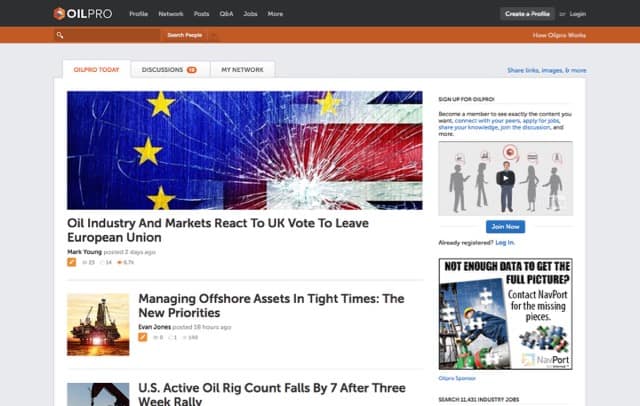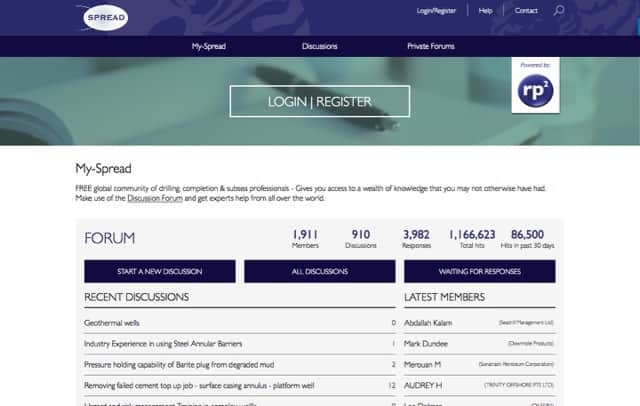Why a Remote Worker Based Outsourcing Company is Better
Taking advantage of globalisation in your business
There are thousands, in fact, probably hundreds of thousands of companies to which you can outsource your online development. We’ve already covered the benefits of using an industry-specific partner in previous posts.
This post covers the benefits of using a company that doesn’t have an office.
There was a time when all companies had offices. The whole company showed up at the same time every morning. There were layers of bureaucracy, oversight and supervision. (From the bottom of the company to the top). Successful companies all had layers at the top too; Presidents, vice presidents, boards of directors and shareholders, all detached from the front line.
This traditional structure isn’t inherently wrong, and there are benefits gained by these companies such as economies of scale, branding, monopoly positions, and so on.
There’s a problem for you, the customer or the client. All of this needs to get paid for inside the pricing structure of what you are buying.
There are skills needed to create your new website, email auto-responder or sales page. These do not need to be possessed by someone forced to sit in the same office cubicle day-in-day-out. Top copywriters and web designers have been seeing the benefits of working remotely for many years now.
If a red hot copywriter says that he does his best work while sitting in his log cabin in the middle of the forest, that piques my interest.
A web designer might say she gets obsessed with new projects.
If she then says it means 18-hour days in the attic, wearing the same pyjamas. I’d love to see the results.
(Who’s bothered about the dress code? Only software code matters in this example).
You don’t have to be an eccentric oddball to work with us, but it might help
It’s not to say that I prefer non-conformists to work with me at my company. If there’s someone like this, who produces amazing work, that’s OK with me. If it’s at a lower cost than an employee in an office cubicle, why live in the past?
Hiring a company that uses outsourced remote staff has some possible disadvantages. It’s especially the case if the company itself is in another country. If you make a terrible choice, your options are more limited.
It will be hard for you to go to the head office and ask to speak to the CEO or Managing Director. You won’t be able to bang the desk and cause an embarrassing scene to get a response. A legal case, if you are not satisfied, will also be severe if the workers are in a different country to you.
These courses of action tend to be ineffective anyway, even if the company is in the same town as you. If you ever get to the stage that you feel the need to lose your temper or call legal advice, you should realise that you made a terrible choice and wear it.
Pursuing negative, energy-draining courses of action might tie up even more of your valuable time and attention. It might be worth it for a shoddy building, but not a website.
Other than in the situations where things go wrong, I can’t think of any reason why you wouldn’t want to use a remote-based company. Where the company is based or not based should be either a neutral factor or a benefit to you as a client.
11 reasons why having remote staff makes sense
A remote working company has the advantage that:
They can scour the earth for the right person for the job, not just the ones who happen to be available in the local job market at the time of recruiting.
They benefit from low fixed overheads such as not needing offices, pension requirements, worker healthcare schemes, and so on.
They operate in a results-based environment. Where coming in on time, having brief coffee and cigarette breaks or other irrelevant metrics are out of the picture. An outsourced worker gets judged on the quality of their work, and the amount they charge for it.
When you have a developer in one country, a copywriter in another, and a social media manager in a third, they can focus on their work. There are no office politics or negative troublemakers to bring the whole team down.
They’re nimble and can hire according to the workload. There are no problematic downsizing dilemmas or regulatory issues. For example, a staff member is there for a ‘year and a day’ which means that the extra day could cause an unfair dismissal suit.
There are no sexual harassments, bullying, favouritism and office romances to get in the way of work.
The workers can’t join together to undermine a manager or the company itself. They can’t group and create a new company while stealing customer information: no mutinies or power struggles.
Due to the remote nature of the work, there are no company superiors to ask advice. This isolation might seem like a disadvantage, but remote workers tend to be expert at using their problem-solving initiatives. Does that old guy in the corner office know more than Google? No. Remote workers join industry forums and private memberships where they can ask advice from some of the brightest minds in the world, not just the company.
There’s far less awkwardness in hiring and firing, and in starting new client contracts or finishing them. This acceptance is because there’s an understanding that deals and staff come and go. Also, it’s easier because we’re unlikely to bump into anyone that we do business with, in the supermarket.
There are excellent avenues and structures in place for hiring remote staff. If I needed ten new web developers, I could find them quickly. It’s far more straightforward than if I were trying to post adverts in local newspapers and job centres. The same applies to any website development, SEO, content or social media related staff.
Technology workers tend to lead the charge in innovation and the latest solutions. This trend is how virtual based work is moving. Why commute and sit in traffic, to be micromanaged and controlled, and work in a mundane routine, when you can work on your terms? Some of the most creative and resourceful people are making this choice. These pioneers are the ones that are confident and bold enough to go it alone. There are the types of people you want on your project, not office drones.
Update on the 22nd Feb 2017: while this post got written with the subtle intention of putting your mind at rest about the fact that WE operate as a remote/outsourced based business… A reader email indicated to us that you might see the benefit in transitioning your business in the same way. While we use outsourcing as a competitive business advantage, we are certainly not experts. Here is an epic post on the topic by someone more expert than us!
Best Communities for Oil and Gas Workers
Best Communities for Oil and Gas Workers 2023
Do you spend much time on industry-related online communities?
If you’re in the oil and gas business, then the chances are that you belong to some online communities that are specific to our industry. The most popular and common ones are LinkedIn and Facebook groups. There are hundreds of such groups, some are location-based, and some are job-based. Are you aware of the best online oil and gas community for workers?
There are many different reasons for wanting to be part of a good network or community. One of the best features of the internet is that we can all choose who we interact with, and these people can be anywhere in the world.
In the oil and gas business, many of us have had the opportunity to live and work in different countries. Online communities allow us to stay in touch with interesting people that we meet on our travels in a way that was almost impossible before.
Here are a few good reasons for being part of industry-related communities:
- Support
- Social interaction
- A feeling of connection
- A source of knowledge
- A chance to help others
- Career opportunities
- Business opportunities
The last two points are of particular interest to us here at Out of the Box Innovations. The quality of our network can make the difference between success and failure, being employed or unemployed. For us at OOTBI, it relates to having plenty of new business come in as opposed to having to cold call for our next customer.
Two online oil and gas forums are head and shoulders above the competition and are the best use of your time if you work in the oil and gas industry. We only have 24 hours in a day, and our time is precious. Unless you’re spending time on social media and forums as a way of zoning out of life, then it makes sense to get the best leverage for your time.
It could be that you’re the type of person that works hard at their job. Perhaps, the last thing that you want to do is spend time online reading and typing about work-related topics. If that’s the case, then still read on, because one of these recommended websites is suitable for use purely for work. It’s likely to help you solve work-related problems and challenges quickly and efficiently. There’s a way of consulting with some of the most experienced minds in the world, free of charge.

Historically, these have been the best places for oil and gas workers to get information and network:
The majority of websites that’ll be of interest to those in the oil and gas industry fall into a few categories:
Company websites
These have contact information, product specifications, guides, press releases and perhaps a few resources. They’re not usually places that have you wanting to come back for more. On average, there’s not much that could get described as overly interesting, lively or particularly informative. They do their job though, and if you’re looking for any particular product or service, you can find out about the companies who supply it.
News websites
We get our news from a variety of sources depending on the way that we like to digest it. There tend to be tiers of accuracy, quality, and purity of information. There are only so many actual industry events in a given week, and they tend to get covered by the mainstream media first.
Then, this same news is written about by bloggers, industry experts, and then the majority is ‘cut and paste’ type regurgitated stories. At the bottom of the pile, you get inaccurate and misleading news articles that are written simply for clicks or shares.
If you see headlines such as:
Saudi Arabia is about to destroy the US oil industry completely
The oil industry is about to add a million jobs
Oil is about to spike back to $100 for this black swan reason
Then don’t complain when your eyes are insulted by a load of low brow nonsense.
There’s nothing on ‘crudeoilnewsandgossip.com’ that you won’t see on Reuters or CNN first.
Generic Social Media Channels
We all have our favourite social media channels. There are larger communities of oil and gas workers on Facebook, LinkedIn, and Twitter. Here we can see whatever we want in our news stream. Some people have a preference for mixing their industry news with sports results, soft porn or whining and complaining.
Those who are good at blocking, unfollowing and pruning their stream will get the best results from social media. A skilled practitioner can get much of what they need from the previously mentioned social media channels. There’s a tendency for LinkedIn to be a little recruiting biased, and Facebook to be a more tabloid type read. Twitter has an art to it that can be very rewarding for those who master it.
Do you want real information, that’s industry-specific and can help answer questions and solve problems? Then you ought to be spending time on our following two recommended websites though.
STOP PRESS! Our first recommendation of Oilpro is no longer in existence. This following section and the rest of the article will get left for posterity, and here’s an article where Jason says goodbye to Oilpro. At the end of the next section, there are two brand new suggestions for up and coming oil and gas forums.
Recommendation number 1: Oilpro.com

Oilpro.com has taken the oil and gas industry by storm; the rise in visitor numbers has been staggering. It’s neither a social media site, or a news site, yet it takes the best of both and does the job in a way that other websites don’t.
A downside of official news sites is that the content is written by reporters who by definition, report a different side of a story to those who create the event or are directly affected by it. We all hear of plenty of situations where ‘the media got it all wrong’ not just from celebrities, but from industry leaders in various industries.
On Oilpro.com, many of the blogs and reports get written by industry insiders and primary sources. This insider slant is different from when a reporter approaches them as a ‘source’. On Oilpro, it’s easy to find news and opinion that’s written by those who make the news. (Or are very close to the developments in the oil fields or on the rigs).
Another problem with many of the mainstream news websites are the rowdy comments sections. These comments tend to get dominated by trolls, the clueless, and those with a political agenda. An actual company or industry representative would be fearless and foolish to get caught in that kind of crossfire.
On Oilpro.com the comments section is often just as informative, and sometimes far more entertaining than the post itself. There is a hardcore of passionate, experienced and intelligent people who spend their spare time for the betterment of the industry. (You know who you are, thank you! Oh and thanks for visiting my humble blog post too. Cheers).
Want real oil and gas industry news from bonafide experts? Then, have the information fact-checked and debated below in the comments section! There’s no other place online to do this as far as I’m aware.
I often see Oilpro getting referred to as LinkedIn for the oil industry, and I think that this is a good analogy. Perhaps a more accurate definition would be:
LinkedIn on steroids for the Oil and Gas Industry.
Note by Jason as of the 27th of June 2018:
For the last couple of years, I’ve been monitoring different oil and gas websites that could get termed as forums or communities. Until recently, the only suitable alternative to Oilpro was LinkedIn.
Now, I’m happy to announce that Oilprice.com has started a community that’s moving in the right direction: https://community.oilprice.com/.
Also, Steve and I at NatResPro.com have also started a community as well. Unlike Oilprice, we’re bootstrapping and trying to find the time to get traction among other projects. We’d appreciate you dropping by to post a comment or 2 though! https://natrespro.com/community/
Recommendation number 2: My-Spread.com

If Oilpro is LinkedIn for the oil industry, then perhaps my-spread.com is the equivalent of Quora. Quora.com is an open forum where it is free to sign up and create a profile. Then you can post questions and answers on any topic in the world. People who spend time there are motivated by being helped, and being helpful. This knowledge ‘gift exchange’ forum is user-generated, and people do it for genuine reasons.
For those who’ve not used Quora.com, it is like Yahoo answers but on a much higher level. The quality control is high, and spam and irrelevance get minimised. It’s information sharing in its purest form. You can check the profile of the person replying to see how experienced or knowledgeable they are. You can see if they’re qualified enough to answer your question.
My-Spread.com is the leading problem-solving forum for the oil industry. While it gets geared towards engineers, geologists and drilling managers, topics from any planning or operational side of the industry are there.
My-Spread is a no-nonsense, efficient problem-solving machine to which there is no other comparison on the web. Every single new member and organisation is personally reviewed and vetted by more than one moderator. Each question, answer or comment gets emailed to the site owners and managers who will edit or weed out anything unsuitable right away. Then these updates go out on a daily email alert to almost 2000 high-level technical problem solvers.
It’s a bit like an ‘almost live’ radio show that gets aired shortly after recording. It is hot-off-the-press but pre-moderated for relevancy and quality.
Because of the quality control and efficiency built into the system, you as a user will experience minimum friction in the process. If you post a question, you will see in the daily update the person has answered it. You only need to log into the site if you physically want to search for or type something.
This ease of use is a boon to you while you are working on-site. If you can check your email, you can get the answer to your question. There’s no need to go to the website to look at responses.
Conclusion: the best oil and gas forums now
If you’re not already using Oilpro and My-Spread, then check them out. We all probably spend a bit too much time online. Have you ever gone onto Facebook for five minutes and found yourself looking at junk 30 minutes later? Have you ever logged off and felt that your time had gotten wasted? This feeling is unlikely to happen when you use either of these two oil and gas forums. If by chance you log on and don’t find anything substantial that day, you can still be happy that you didn’t miss anything. If something important is happening, or if technical problems can be solved, this will be happening on Oilpro (Oilprice or NatResPro) and My-spread.
Disclosure: My-spread.com is a client of Out of the Box Innovations. This review was not solicited by, or paid for by the owners of my-spread.com. OOTBI has no commercial relationship with Oilpro. This article got based on the opinion of the writer, and the words would be the same regardless of any client relationship.



